The Expanse Is Epic Sci-Fi Storytelling at Its Very Best
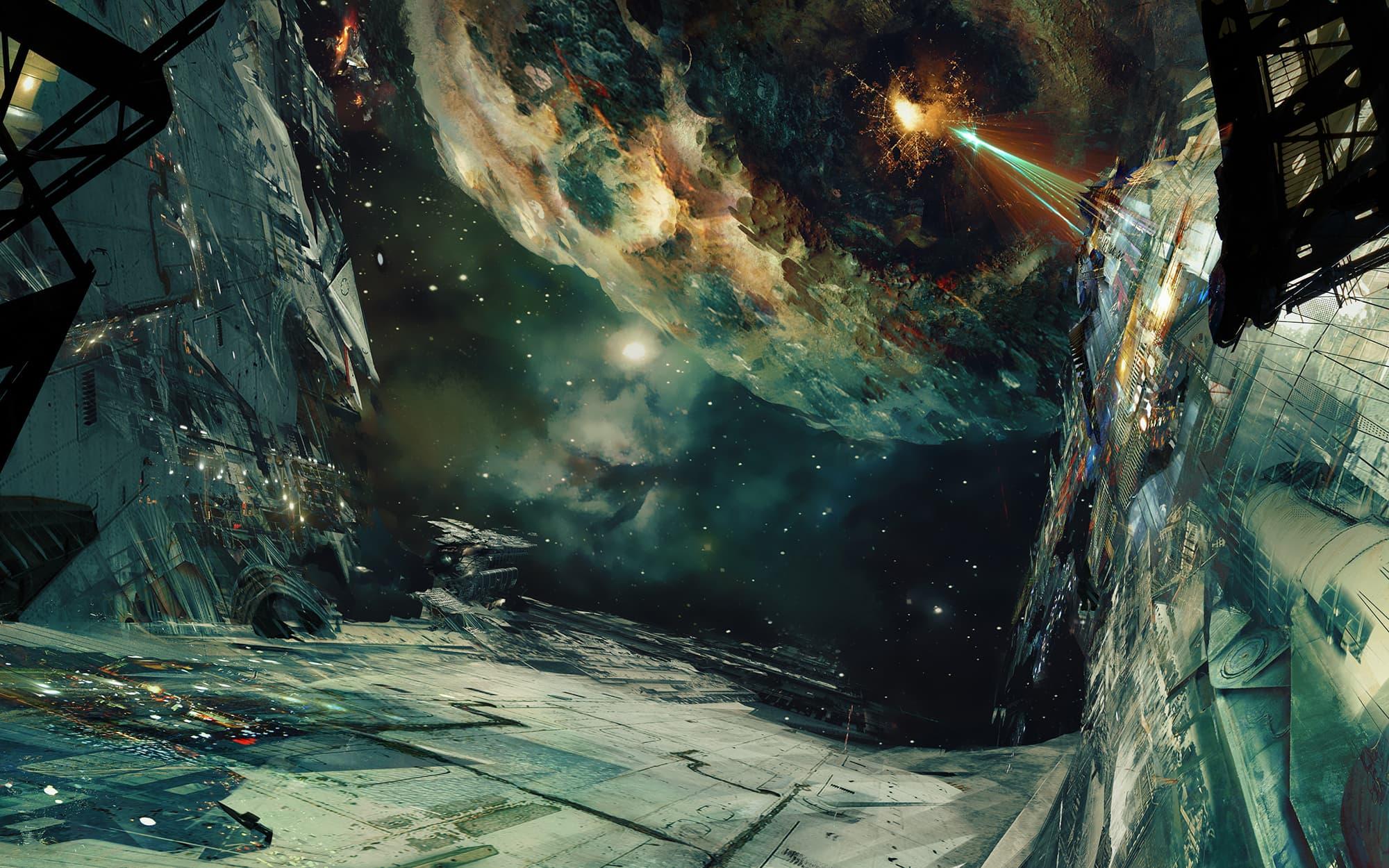
I’ve made very little effort to hide my love for The Expanse, even going so far as to call it “the best sci-fi show on TV right now” back in 2020, an assertion by which I still stand even though the series is over. But after The Expanse ended in January — prematurely, it seemed, after a far-too-short season of just six episodes — I wasn’t ready to be done.
And so, I decided to read the original novels on which The Expanse was based, which I did over the course of seven months. In so doing, I not only got to enjoy some sci-fi novels that were excellent in their own right, but I also came away with a deeper appreciation for the TV series, what it achieved, and even why it ended how and where it did.
Written by James S. A. Corey — the nom de plume for authors Daniel Abraham and Ty Franck — The Expanse consists of nine full-length novels published between 2011 and 2021, as well as several short stories and novellas that were collected in Memory’s Legion, which was published in March 2022. (One short story, The Last Flight of the Cassandra, remains exclusive to The Expanse role-playing game.) In addition to The Expanse, Abraham and Franck have also written Star Wars stories and contributed to a George R. R. Martin anthology under the “James S. A. Corey” moniker.
The following contains potential spoilers for The Expanse novels, stories, and TV series. Consider yourself warned.
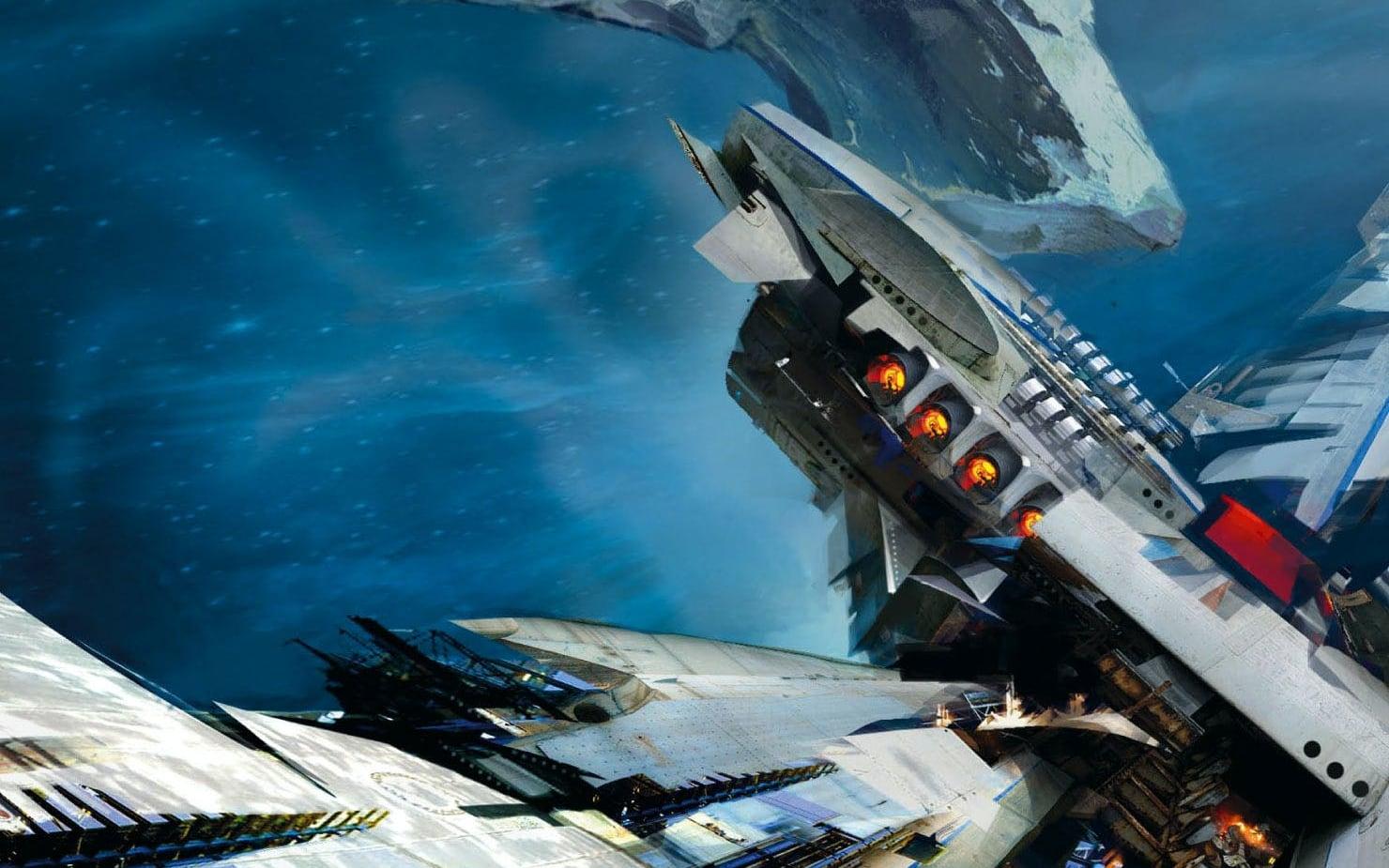
Set hundreds of the years in the future, The Expanse is a wide-screen cinematic space opera that follows humanity’s efforts to spread throughout the stars, and the various conflicts, struggles, and triumphs that come about as a result. When the series begins, humanity has successfully colonized a good deal of the solar system, but in the process, has split into three factions:
- Earth is still the solar system’s dominant power, due to it status as humanity’s original home. However, it’s over-crowded by billions of people living in near-squalor, beset by environmental issues, and considered stagnant and out-of-touch with the rest of the solar system’s concerns.
- Mars isn’t nearly as populous as Earth but its militaristic society is far more advanced and disciplined thanks to the planet’s demanding terraforming project. Earth and Mars are technically allies, but said alliance is tenuous at best, and exists primarily to maintain control over the third and final faction.
- The Belt is the asteroid belt located in-between Mars and Jupiter that’s inhabited by humans who mine its resources for Earth and Mars’ benefit, often at great risk. Over generations, Belters have developed their own unique culture and language, while life in a low-gravity setting has dramatically affected their physiology.
To Abraham and Franck’s credit, each of these factions is richly detailed, with their own pros and cons, triumphs and atrocities, heroes and villains.
It’s tempting to side with the Belters, who are clearly oppressed by Earth and Mars. But when they resort to terrorist attacks in their fight for independence, things quickly get murky. Mars may be more advanced than Earth, and holds Earth in contempt, but their leaders can be callous and corrupt, and easily swayed by totalitarianism. Finally, while Earth is on the verge of collapse, with billions living hardscrabble lives on government assistance, its leaders are some of the most clear-eyed when it comes to the challenges facing the solar system.
Against this complex backdrop, the novels assemble a diverse and colorful cast of characters centered on the crew of the salvaged warship Rocinante. Alex Kamal served in the Martian navy, where he became a skilled pilot; mechanic Amos Burton rose from the ghettos of Earth and serves as the crew’s muscle; Naomi Nagata is running from a checkered past in the Belt and possesses a sense of justice matched only by her engineering skills; and finally, Earther James Holden captains the Rocinante with a fierce idealism that frequently gets them all in trouble. But despite containing members from all three factions, the Rocinante crew are often at odds with everyone else in the system, and forced to find their own way together.
Beyond the Rocinante, there’s Fred Anderson, a decorated Earth officer who sided with the Belt after becoming disgusted by Earth’s treatment of Belters; Josephus Miller, a world-weary Belter detective who begins working a case with monumental repercussions for the entire solar system; Anderson Dawes, a representative of the organization fighting for Belter independence who might also be a terrorist; and Julie Mao, a young woman rebelling against her rich family out of sympathy for the Belt who ends up in a very dangerous situation.
And that’s just the first novel.
Subsequent novels introduce Chrisjen Avasarala, a hard-nosed Earth politician whose considerable political acumen is enhanced by her quick wit and potty mouth; Bobbie Draper, an elite Martian soldier who discovers that loyalty to Mars might require her to commit treason; Praxidike Meng, a botanist who gets caught up in a vast conspiracy when he begins searching for his missing daughter; Anna Volovodov, a Methodist pastor whose desire for peace is sorely tested by humanity’s growing conflicts; and many, many more.
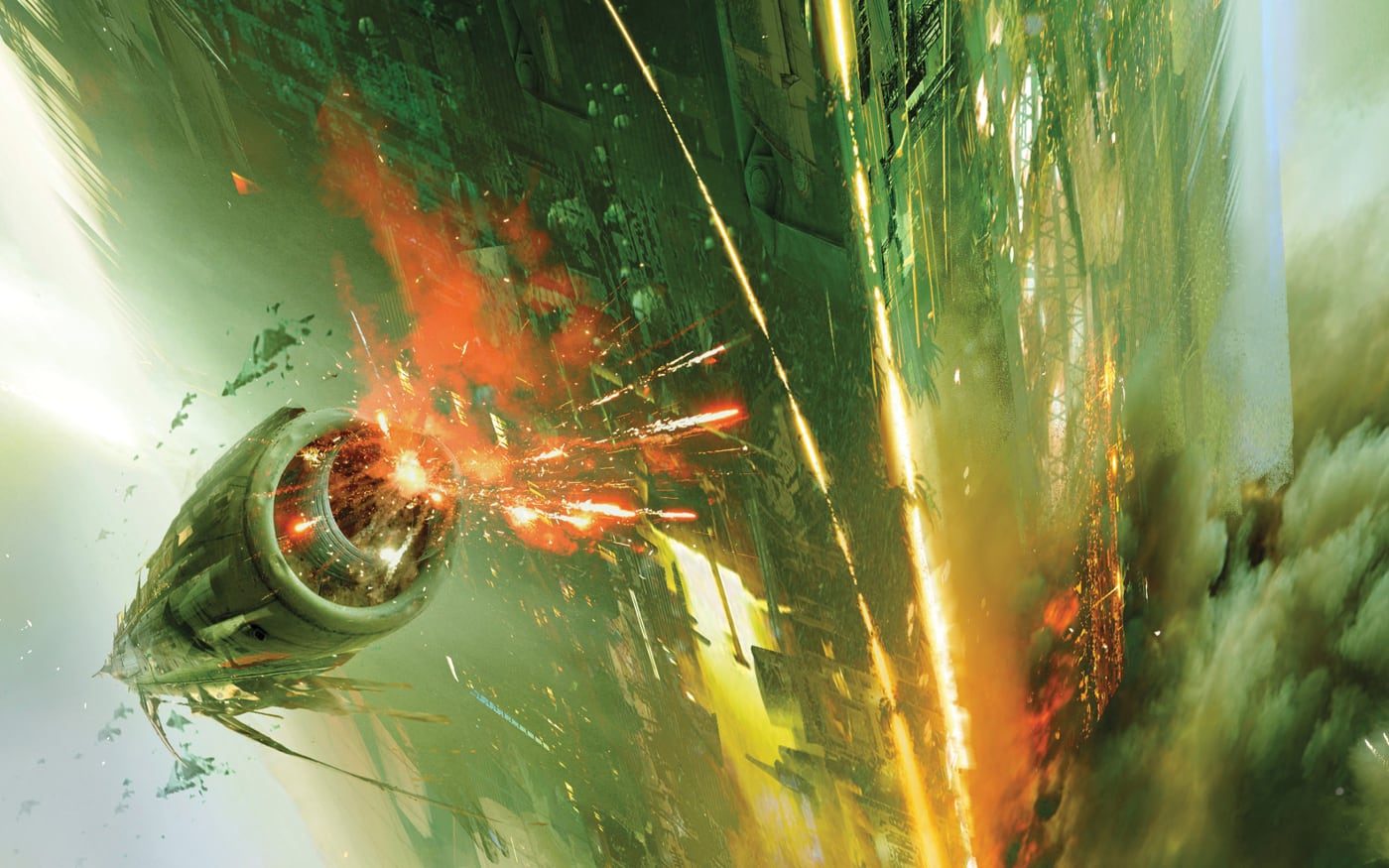
Speaking of all these characters, let me just say that The Expanse TV series absolutely nailed its casting. Indeed, as I was reading the novels, it was impossible to not hear Steven Strait, Dominique Tipper, or Shohreh Aghdashloo’s voice whenever I read Holden, Nagata, or Avasarala’s dialog.
Both Wes Chatham and Frankie Adams did amazing jobs bringing Burton and Draper to life, characters that could have easily been clichés. Chatham, in particular, was remarkable at conveying Burton’s many facets — child-like innocence, shocking violence, surprisingly philosophical insights into human nature, a touching relationship with Clarissa “Peaches” Mao — without his performance ever feeling forced or over-the-top.
That said, there are differences between the books and the TV series. Perhaps the most noteworthy is that Camina Drummer, a definite “fan favorite” in the TV series thanks to Cara Gee’s captivating performance, is very different from the novels’ Camina Drummer, who is more of a bureaucrat. The character in the novels most like TV’s Drummer is Michio Pa, a captain in the Belter navy who grows disillusioned with the Belt’s fight for independence and goes rogue. (A character named Michio does appear in the TV series, but as a member of Drummer’s crew.)
More examples: TV’s Klaes Ashford is a far more honorable and admirable Belter captain than his novel counterpart. The novels’ Praxidike Meng doesn’t have quite the same endearing friendship with Burton that he does in the TV series, but his role is more substantial. And while Anna Volovodov’s political connections are more pronounced in the TV series, she’s a welcome voice of conscience and spiritual insight in both versions of The Expanse.
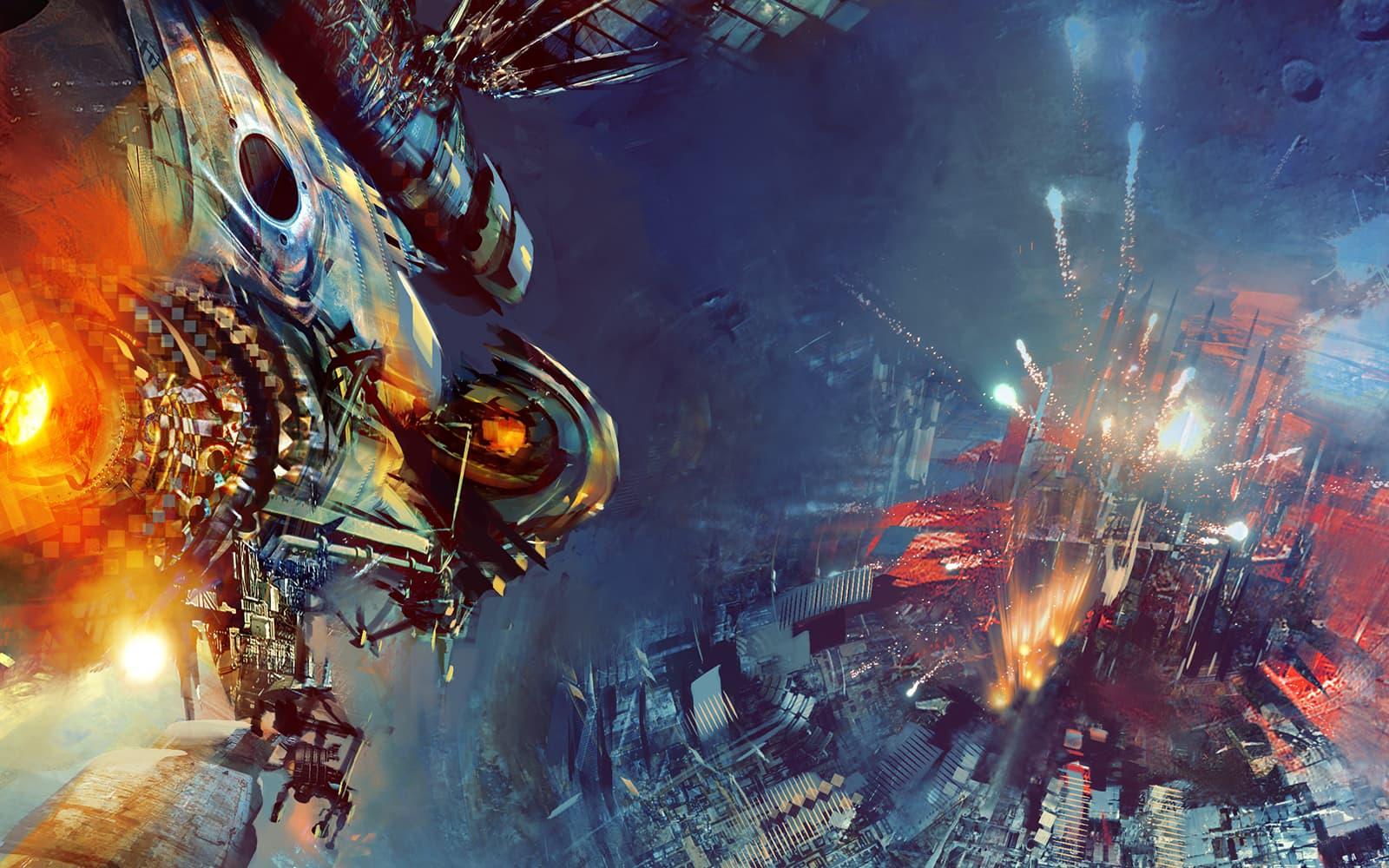
The nine Expanse novels can be divided into three sub-trilogies. The first trilogy — Leviathan Wakes, Caliban’s War, and Abaddon’s Gate — sets the stage and the ongoing conflicts between humanity’s factions. More importantly, it chronicles humanity’s first contact with the protomolecule, an alien technology that dramatically up-ends the balance of power within the solar system.
When the protomolecule’s power is revealed, everyone scrambles to get it for themselves in the hopes of using it against their enemies, only for the protomolecule to reveal its own plans. These involve “infecting” and devastating the planet Venus and then creating a giant ring gate near the edge of the solar system that serves as a portal to over 1,300 other systems spread throughout the galaxy — many of them containing planets that could serve as new homes for humanity’s teeming masses.
The second trilogy — Cibola Burn, Nemesis Games, and Babylon’s Ashes — explores the ramifications of these new worlds, including the resulting land rush and power struggles. Meanwhile, the Belters’ fight for independence reaches a new stage when Marco Inaros, leader of the Free Navy and Nagata’s former lover, unleashes a devastating new attack on Earth.
As for the protomolecule ring, it might represent the next step for human civilization, but it could also mean humanity’s end when an ancient menace reawakens and begins to reassert itself. And whether they’re negotiating between an Earth corporation and Belter settlers on a distant planet, or going their separate ways to deal with personal business, the Rocinante crew somehow always ends up in the middle of things — much to their chagrin.
The third and final trilogy — Persepolis Rising, Tiamat’s Wrath, and Leviathan Falls — jumps ahead thirty years. (This time jump, by the way, combined with the novels’ multi-trilogy structure, explains why the TV series stopped where it did. Which isn’t to say that I don’t still want more episodes.) The Rocinante crew is ready to enjoy their golden years, with Holden and Nagata finally retiring, only for a new human faction to make its presence known.
The Laconian Empire is an offshoot of Mars, and has spent the intervening decades studying and harnessing the protomolecule. With its protomolecule-enhanced technology, the Empire quickly overpowers Earth, Mars, and the Belt, and begins implementing the will of its ruler, High Consul Winston Duarte, across all human systems.
A scrappy-yet-beleaguered rebellion rises to counter the Empire’s supposed new golden age for humanity, but when strange phenomena begin occurring and entire solar systems are mysteriously wiped out, it becomes clear that the true threat lies somewhere else — if anyone’s paying attention. Not surprisingly, the Rocinante crew finds themselves in the midst of the action yet again, and Holden, Nagata, et al. may need to sacrifice everything that’s dear to them if humanity is to survive.
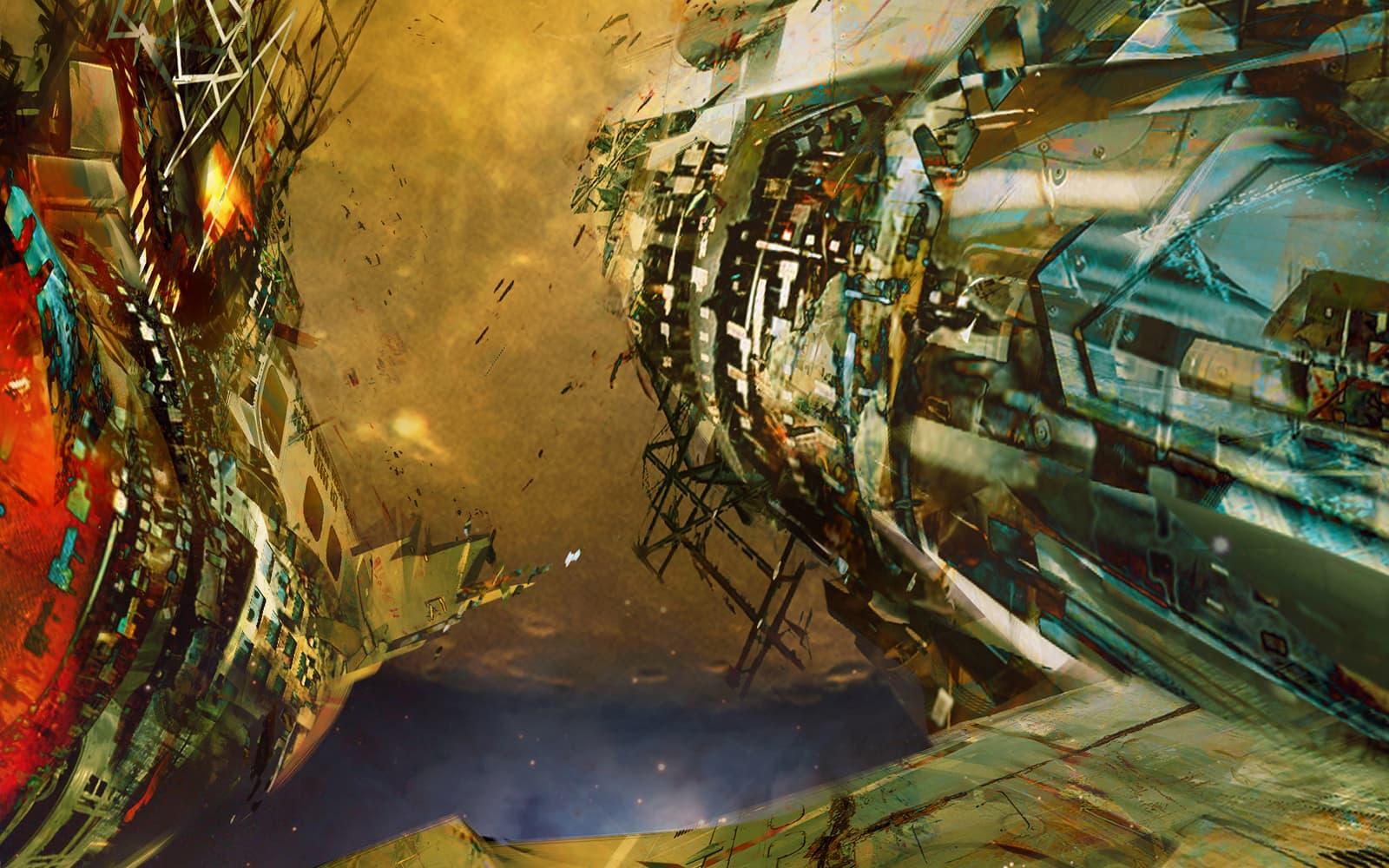
The Expanse novels are packed with epic, galaxy-spanning action involving massive space battles, secret military bases, horrific science experiments, corporate conspiracies, hard-bitten detective work, ancient alien technology, and god-like entities bent on destroying reality as we know it. But as thrilling as that stuff might be — and it is, indeed, very thrilling, especially since the authors continually raise the stakes — the novels never lose sight of the humanity caught up in the midst of such events.
This emerges in the individual characters’ stories, be it Kamal’s desire to reconnect with the family he abandoned long ago, Nagata’s regret for the sins of her youth, or Draper’s conflicted loyalties for Mars and Earth. But it’s also seen in the many examples of thoughtful world building, such as the Belters’ language and culture (which have been irrevocably shaped by life in the vacuum of space) — all of which feel plausible and lived-in.
Indeed, one could easily make a case that The Expanse is a masterclass in fictional world building, in striking a balance between what’s fantastical and bizarre, and what’s realistic and requires little-to-no suspension of disbelief. (It helps that one of the series’ key points is that the more things change, the more they stay the same, insofar as human nature goes. More on that in a moment.)
As I made my way through the novels, though, I was repeatedly struck by the authors’ balancing act between two distinctly opposing views of humanity. The first view is deeply cynical and supported by the many squabbles that occur amongst humanity’s factions, corporate greed and malfeasance, government corruption and tyranny, and the arrogance, hatred, and cruelty of individuals — and the impact they all have.
One of the best and most poignant summations of this view occurs in the final novel, Leviathan Falls, as Nagata and Kamal race to save dozens of ships from being destroyed by the ancient alien threat drawn to the ring gates — an effort that’s been historically hampered by human selfishness and distrust. But eventually, the ships begin working together and implement a protocol that Nagata developed for safe travel through the gates. At which point, Nagata and Kamal have this world-weary, heart-broken exchange:
Alex unstrapped and let himself down onto the ops deck. Naomi was in her crash couch. The light of the screen shone in her eyes and her pale hair. She looked over at Alex, her expression someplace between sour and amused.
“Yeah,” said Alex.
“It would have worked,” she said. “If we’d cooperated, it would have worked.”
“It would have been better.”
“I think about all the things we could have done, all the miracles we could have achieved, if we were all just a little bit better than it turns out we are.”
It’s impossible not to hear the exhaustion, sorrow, and disappointment in those words (and impossible not to hear them in Dominique Tipper’s voice).
The second view is much more optimistic and revels in humanity’s ability to adapt, unite, and show mercy and decency to each other. This view is supported by Prax’s determined search for his daughter, Elvi Okoye’s dogged pursuit of scientific discovery and truth, Anna Volovodov’s compassion and conviction, and even the unlikely bond that forms between Amos Burton and Clarissa Mao, two broken individuals whose only commonality seems to be a proclivity for violence.
This view is best exemplified, however, by James Holden’s endless idealism, whether it’s his belief that people deserve to know the truth, his disbelief at people’s selfishness and brutality, or his refusal to bow to tyrants and bullies. Such idealism frequently gets him in trouble, and is often mocked and dismissed as naïve, but people eventually come to trust and rely on it because it proves to be such a rare and necessary commodity.
In the final pages of Leviathan Falls, Holden — who isn’t really human anymore — has an exchange with a resurrected Miller (just read the novels, it all makes sense) as they hold back an alien attack in order to save the remnants of humanity:
“I absolutely believe that people are more good on balance than bad,” [Holden] said. “All the wars and all of the cruelty and all of the violence. I’m not looking away from any of that, and I still think there’s something beautiful about being what we are. History is soaked in blood. The future probably will be too. But for every atrocity, there’s a thousand small kindnesses that no one noticed. A hundred people who spent their lives loving and caring for each other. A few moments of real grace. Maybe it’s only a little more good than bad in us, but…”
Preachy? Yes. But would it be nice if more people reflected on life like this? Absolutely. And in keeping with the novels’ moral complexity, the above exchange occurs right before Holden takes one last desperate step to ensure the survival of both humanity and the entire universe — a step that will likely doom untold millions.
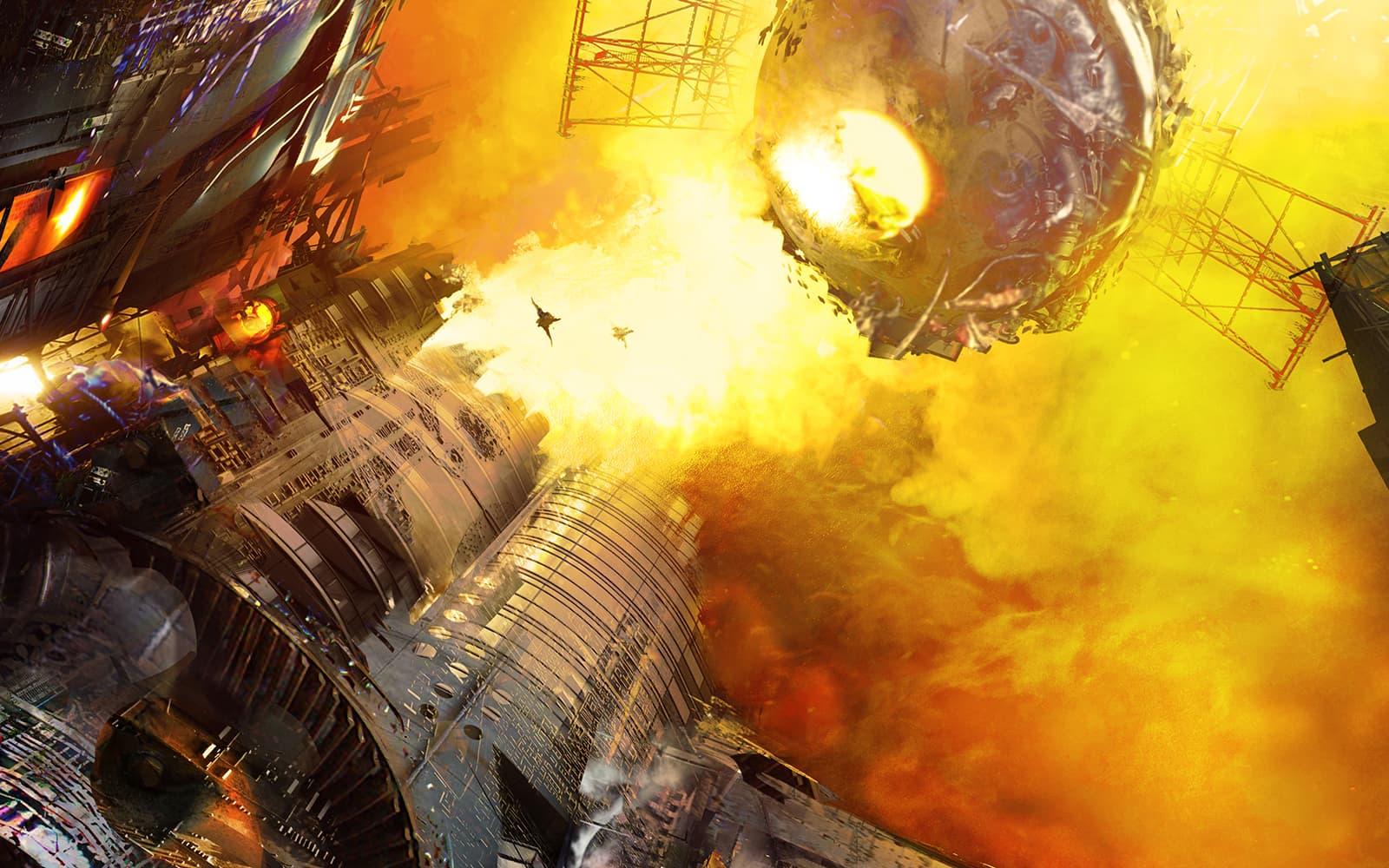
Abraham and Franck themselves offer a beautiful summation of their series in the afterword for the final Expanse story, titled The Sins of Our Fathers. The novella catches up with Naomi’s estranged son Filip when he’s an adult and ends with a brutal act of violence that, from a certain perspective, might be completely necessary and justified.
Reflecting on the story, and the series as a whole, Abraham and Franck write (emphasis mine):
One of the central arguments we’ve made with these stories is that, when you look at history, you see the same kind of people doing the same stupid, selfish, delusional, gorgeous, kind, astonishing things that we do today. And we’ll keep doing the same, as long as the species survives. Technical knowledge advances. The organism stays the same.
And, to quote Naomi from her younger days: We’re spending our whole lives together, so we need to be really gentle.
“We need to be really gentle.” For all of its cinematic action, superb world building, instances of brutal violence, creative cussing (courtesy of Avasarala), and copious amounts of drinking (folks in The Expanse sure do love a good whisky, even one that’s made from mushrooms), that’s really what The Expanse ultimately boils down to. Which is precisely why it’s such a fantastic, enjoyable, and rewarding series.
All of the above artwork is by Daniel Dociu. His vivid and abstract covers for The Expanse novels evoke classic sci-fi artwork while conveying the series’ epic scope.